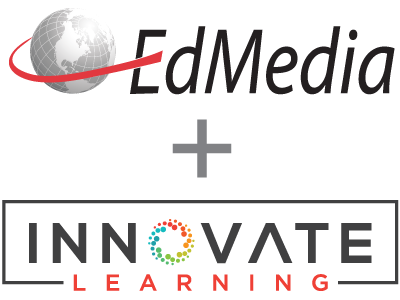
Using 3D Virtual Worlds – OpenSim, Quest Atlantis – to Teach International School Students Computer Science and Human Values
PROCEEDINGS
Alexander Makosz, Changchun American International School, China
EdMedia + Innovate Learning, in Lisbon, Portugal ISBN 978-1-880094-89-1 Publisher: Association for the Advancement of Computing in Education (AACE), Waynesville, NC
Abstract
“The future of the Internet will be three-dimensional!” So says the prescient website internet3d.org, and although innovations such as augmented reality might still be a few years off, two researchers at a trendsetting international school in China are using existing educational technology – 3D virtual worlds, namely OpenSim and Quest Atlantis – to address two issues common to teaching computer science and other disciplinary studies in their academic environment. International school students quite often have widely varying levels of proficiency in English or whatever the language of instruction: nonfluent learners need to succeed, native speakers mustn’t be hampered. And the teaching of technical skills shouldn’t be an end in itself: a more holistic means of instruction is needed, to instill understanding of social context in general and human values in particular.
Citation
Makosz, A. (2011). Using 3D Virtual Worlds – OpenSim, Quest Atlantis – to Teach International School Students Computer Science and Human Values. In T. Bastiaens & M. Ebner (Eds.), Proceedings of ED-MEDIA 2011--World Conference on Educational Multimedia, Hypermedia & Telecommunications (pp. 2480-2489). Lisbon, Portugal: Association for the Advancement of Computing in Education (AACE). Retrieved August 8, 2024 from https://www.learntechlib.org/primary/p/38209/.
© 2011 Association for the Advancement of Computing in Education (AACE)
Keywords
References
View References & Citations Map- Aldrich, C. (2009). Learning online with games, simulations and virtual worlds: Strategies for online instruction. San Francisco: John Wiley& Sons, Inc.
- Barab, S.A., Dodge, T., Ingram-Goble, A., Volk, C., Peppler, K., Pettyjohn, P. & Solomou, M. (2009). 'Pedagogical Dramas and Transformational Play: Realizing Narrative through Videogames Design.' Lecture Notes in Computer Science, 59(15), 332-335.
- Barab, S., Dodge, T., Tuzun, H., Job-Sluder, K., Jackson, C., Arici, A., Job-Sluder, L., Carteaux, R., Gilbertson, J. & Heiselt, C. (2007). 'The Quest Atlantis Project: A Socially-Responsive Play Space for Learning.' The Educational Design and Use of Simulation Computer Games, 00-00.
- Barab, S.A., Thomas, M.K., Dodge, T., Squire, K. & Newell, M. (2004). 'Critical Design Ethnography: Designing for Change.' Anthropology and Education Quarterly, 35(2), 254-268.
- Davies, G. (2009). Preface. In Molka-Danielsen, J. & Deutschmann, M. (Eds.), Learning and teaching in the virtual world of Second Life. Trondheim, Norway: Tapir Academic Press.
- Davis, R. & Wong, D. (2007). 'Conceptualizing and Measuring the Optimal Experience of the eLearning Environment.' Decision Sciences Journal of Innovative Education, 5(1), 97-126.
- Dodge, T., Barab, S., Stuckey, B., Warren, S., Heiselt, C. & Stein, R. (2008). 'Children's Sense of Self: Learning and Meaning in the Digital Age.' Journal of Interactive Learning Research, 19(2), 225-249.
- Kapp, K.M. & O’Driscoll, T. (2010). Learning in 3D: Adding a new dimension to enterprise learning and collaboration. San Francisco: John Wiley& Sons, Inc.
- Moore, D., Thome, M. & Haigh, K.Z. (2008). Scripting your world: The official guide to Second Life scripting. Indianapolis: Wiley Publishing, Inc.
- Thomas, M.K., Barab, S.A. & Tuzun, H. (2009). 'Developing Critical Implementations of Technology-Rich Innovations: ACross-Case Study of the Implementations of Quest Atlantis.' Journal of Educational Computing Research, 41(2), 125-153.
- Warren, S.J., Stein, R.S., Dondlinger, M.J. & Barab, S.A. (2009). 'A Look Inside the MUVE Design Process: Blending Instructional Design and Game Principles to Target Writing Skills.' Journal of Educational Computing Research, 40(3), 295-321.
- Weber, A., Rufer-Bach, K. & Platel, R. (2008). Creating your world: The official guide to advanced content creation for Second Life. Indianapolis: Wiley Publishing, Inc. What is OpenSimulator? (2010). Retrieved December 7, 2010 from http://opensimulator.org/wiki/Main_Page.
These references have been extracted automatically and may have some errors. Signed in users can suggest corrections to these mistakes.
Suggest Corrections to References